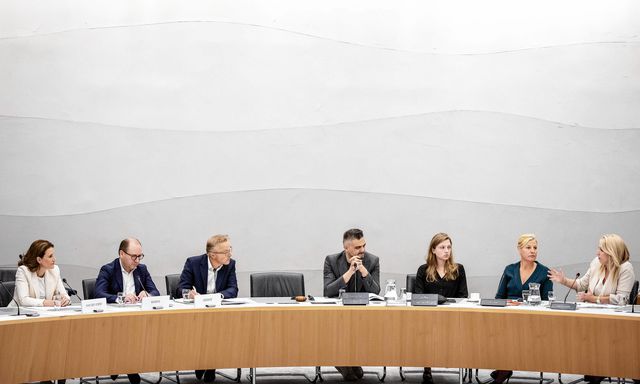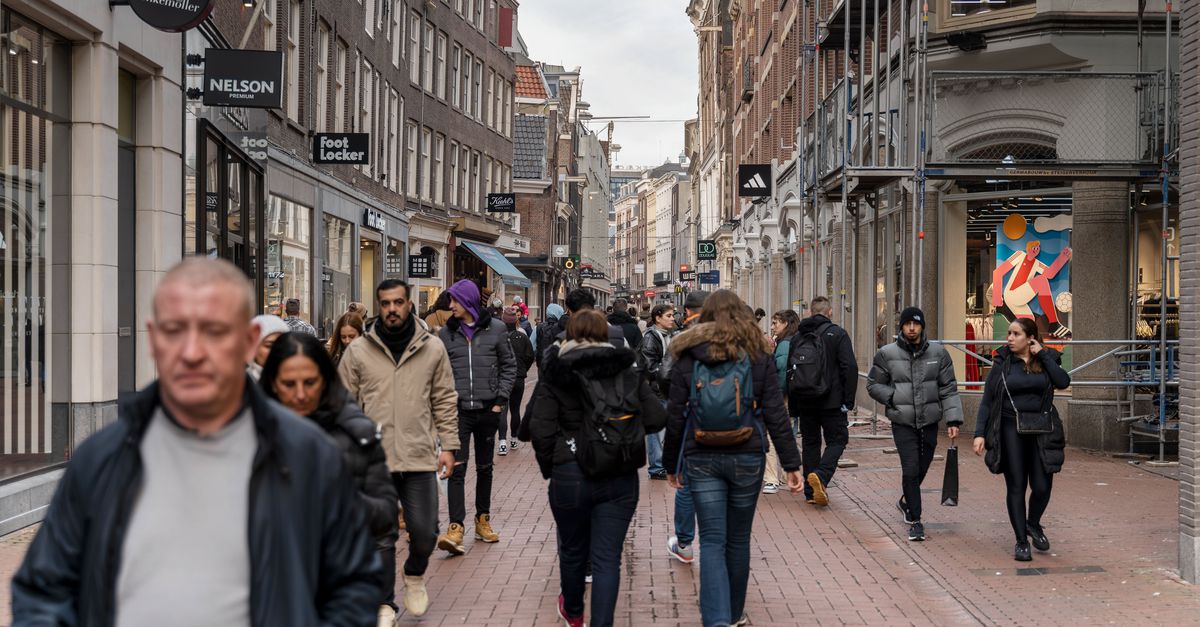Is the Dutch business community benefiting from high inflation, or are most entrepreneurs trying to spare their customers? A month ago, economists at Rabobank concluded that companies took advantage of several cost increases to raise their prices slightly, in order to increase their profits. According to a new study by Statistics Netherlands (CBS), the opposite has happened.
According to the Census Bureau, most entrepreneurs are somewhat reluctant to pass the increased costs entirely on to the customer. This was stated by Statistics Netherlands in a report published on Monday in cooperation with the Chamber of Commerce, the Economic Institute for the Construction Industry, MKB-Nederland and VNO-NCW. More than 5,000 companies with at least five employees participated in the survey.
Just over three-quarters of respondents indicated that they cannot or dare to recover the high costs of energy, personnel and raw materials from their customers or buyers. CBS chief economist Peter Hein van Meulijn said this “puts the inflation-chasing discussion into a different perspective.” According to him, the opposite is true. Five questions.
1 How about grabbing the tie back?
Due to raw material shortages, high transportation prices and the energy crisis of the past two years, producers have seen their bills rise rapidly. It is impossible for them to absorb all these additional expenses themselves, so they have adjusted the prices of their products and services. So it’s no surprise that consumers have also seen life become more affordable: Prices rose, on average, by 11.8 percent last year.
But according to economists at Rabobank, Dutch companies have raised prices more than their calculations justify. Because of this additional income, corporate profits rose sharply. The bank said that if entrepreneurs had limited price increases to the level necessary to keep their earnings stable, inflation could theoretically be limited to 9.6 percent.

Read also: “Yes, some companies are making remarkable profits, but there is no conclusive evidence that they will snatch inflation.”
Much has been said about this conclusion since then. Politicians have used the research to criticize the business community, while another economist in the trade journal ESB argued that Rabobank had built itself on “false assumptions”. According to the Central Planning Office, it is still too early to say whether there will be a question of grabbing inflation, said sector chief Debbie Lancer in an interview. Norwegian Refugee Council.
2 What has Statistics Netherlands now achieved?
Statistics Netherlands conducts a quarterly study on mood among Dutch entrepreneurs. They are always presented with a static questionnaire, which is sometimes supplemented with questions relevant at that moment. In recent quarters, the Census Bureau has always asked about passing on cost increases to customers. Almost a fifth of all survey respondents managed to recover all additional costs, while 4.5 percent of entrepreneurs stated that they would not be bothered by the higher costs. The rest can’t fully recover the higher bill from the customer, or don’t you dare to do it. For example, about 27 percent of respondents fear for their competitive position, and 23 percent cannot afford costs due to agreements in contracts. Just under 20 percent absorb higher costs in part because they fear a drop in sales.
3 If there are so few companies passing on their costs, why is inflation so high?
Several possible explanations for this. First of all, the method of measurement: For inflation, Statistics Netherlands looks at the prices of a broad basket of products and services, aimed mainly at consumers. In the Entrepreneurship Survey, researchers rely on what entrepreneurs fill out. In theory, van Meulgen says, participants might not give the actual answer, but rather the desired answer. “But we assume that people honestly fill this in.”
Many entrepreneurs may swallow the costs in part, but pass on the rest
Another explanation is that many entrepreneurs bear part of the additional costs themselves, but also pass on a significant part of them to the customer. “There are more options than an all-or-nothing calculation,” says van Meulijn.
If everyone had paid all costs, I think inflation would have been much higher. Then groceries will get absolutely expensive.”
4 Does Statistics Netherlands also know what part of the costs the entrepreneurs pass on to the customer?
No, in previous studies yes, but not anymore. Statistics Netherlands asked the participants the following question: “To what extent can you pass on cost increases in your rates/tariffs to your clients/customers?” They can give several answers, ranging from “not at all” and “totally” to “pretty much”. Nearly 50 percent of respondents indicated that they had passed all or almost all of the costs onto the customer.
In its last quarter survey, Statistics Netherlands opted for a different formula: “What is the main reason why your company cannot or cannot fully pass on cost increases to your customers/clients?”
The entrepreneur who passed almost all of his extra costs on to the customer now ends up under the same heading as the company that absorbed all the incremental costs on its own.
5 Isn’t this question a bit of a guide?
Not according to van Meulijn. Statistics Netherlands chose a new question because, according to its chief economist, the statistics office was looking for a different answer: why costs weren’t (completely) passed on. “Charging Fully” was an answer option.
After the Rabobank investigation, Van Meulgen saw many accusations of “greed” against the business community. According to him, the fact that his own research no longer shows how many additional costs companies pass on does not change the conclusion: that only a small percentage of entrepreneurs pass all costs onto the customer. “So it’s possible that there are companies that use inflation to add some additional percentages, but based on this research, it appears that these are only a small majority.”
In association with Eastern Georgia and Wren Wieringa
A version of this article also appeared in the June 6, 2023 issue.

“Lifelong zombie fanatic. Hardcore web practitioner. Thinker. Music expert. Unapologetic pop culture scholar.”








